Far from typical survival training, Fieldcraft survival gear has everything you need.
“Fieldcraft” is an all-encompassing term for different outdoor skills pertaining to navigation, personal camouflage and concealment, first aid, combat casualty care and various survival aspects. Fieldcraft goes beyond that and includes mobility, firearms skills, effective observation, and escape and evasion techniques.
FIELDCRAFT SURVIVAL
Mike Glover is the owner and CEO of Fieldcraft Survival, located in Heber City, Utah. Reflecting the description of fieldcraft, Glover developed a training school that includes basic and specialized training on various types of self-defense, medical, fitness, mobility and wilderness survival. Fieldcraft Survival also offers videos on family preparedness, pistol/carbine and fitness programs on the digital option side of training.
Glover described Fieldcraft Survival as being a minority, 100 percent service-disabled, SOF, veteran-owned business. He started Fieldcraft Survival after his extensive military experience in the U.S. Army, specifically the Green Berets and Special Forces. He has a lot of experience working in austere environments. He earned a bachelor’s degree in homeland security and surrounds himself with a very capable team that comprises Fieldcraft Survival staff.
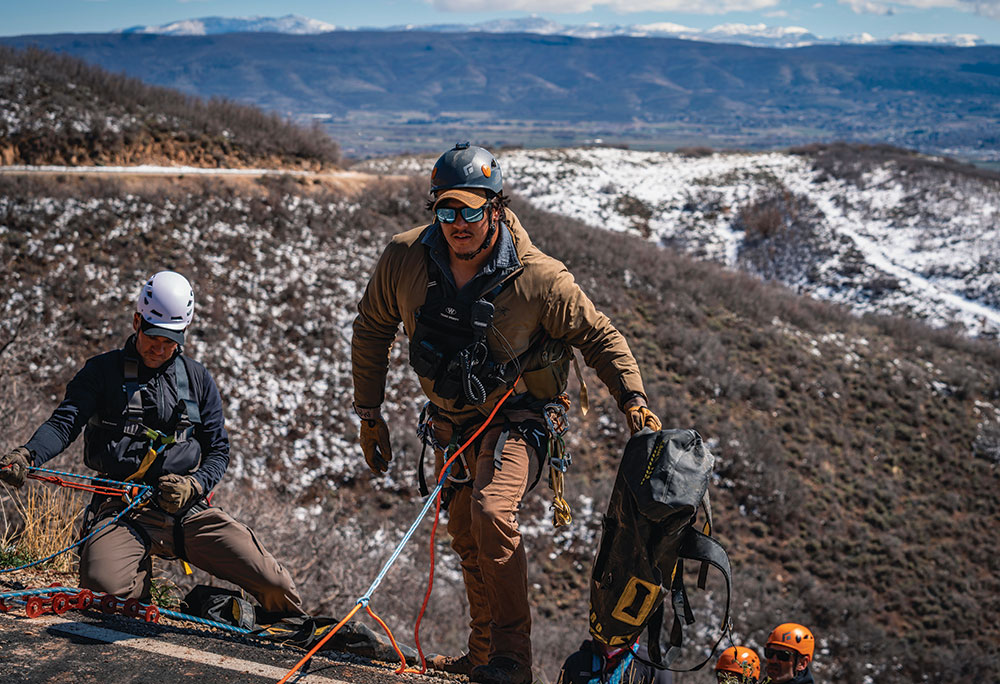
“The company is composed of individuals from a wide variety of backgrounds in the military, survival, medical and overlanding communities,” said Kevin Estela, Fieldcraft Survival’s director of training.
It’s definitely not a typical survival training school. There’s also a “Fieldcraft Survival” podcast hosted by Glover that features the guys from Fieldcraft Survival speaking freely on survival, tactics, defense, gear, fitness, overlanding, military and more. All things regarding preparedness and survival from this podcast can be found on iTunes and Spotify.
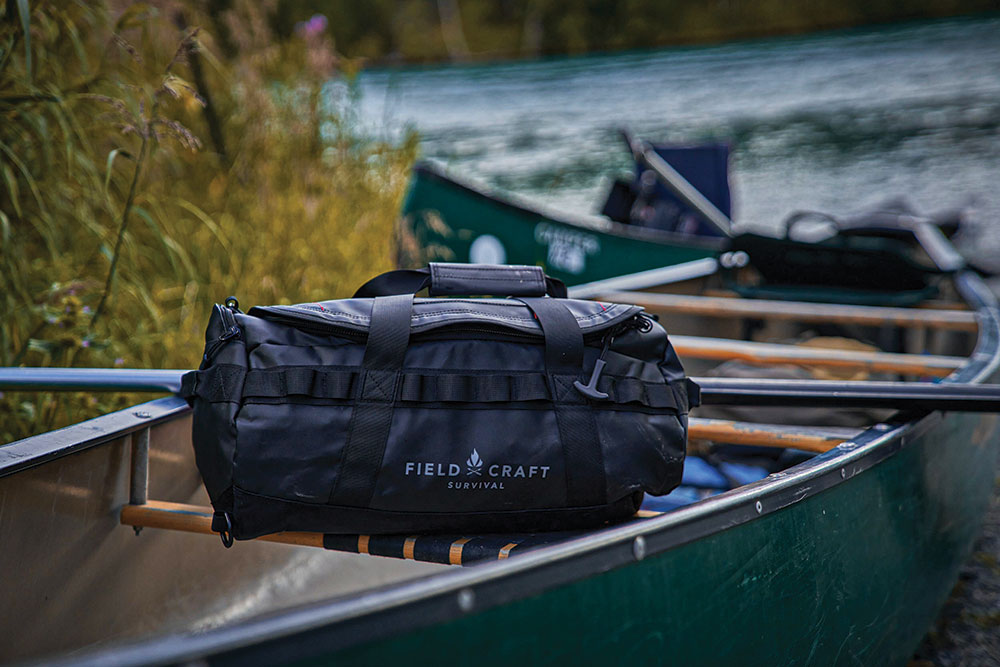
SURVIVAL TRAINING
Why do we train? Do you know how to treat and care for wounds? Can you navigate beyond using only a GPS device? Can you properly protect yourself from the elements and provide cover, heat, hydration? Are you physically and mentally fit?
Survival depends a great deal on a person’s ability to withstand stress in emergency situations. Your brain is, without a doubt, your best survival tool. However, it, too, needs to be trained.
“Fieldcraft Survival continues to grow and is expanding rapidly—without losing sight of the company’s initial mission that Mike Glover put into action along the way.”
Estela is joined by regular assistant instructors, as well as guest instructors from common backgrounds. I’ve known Kevin for several years, and his rise to this position seems perfectly befitting. He heads the survival training portion for Fieldcraft Survival as a longtime instructor of wilderness education.
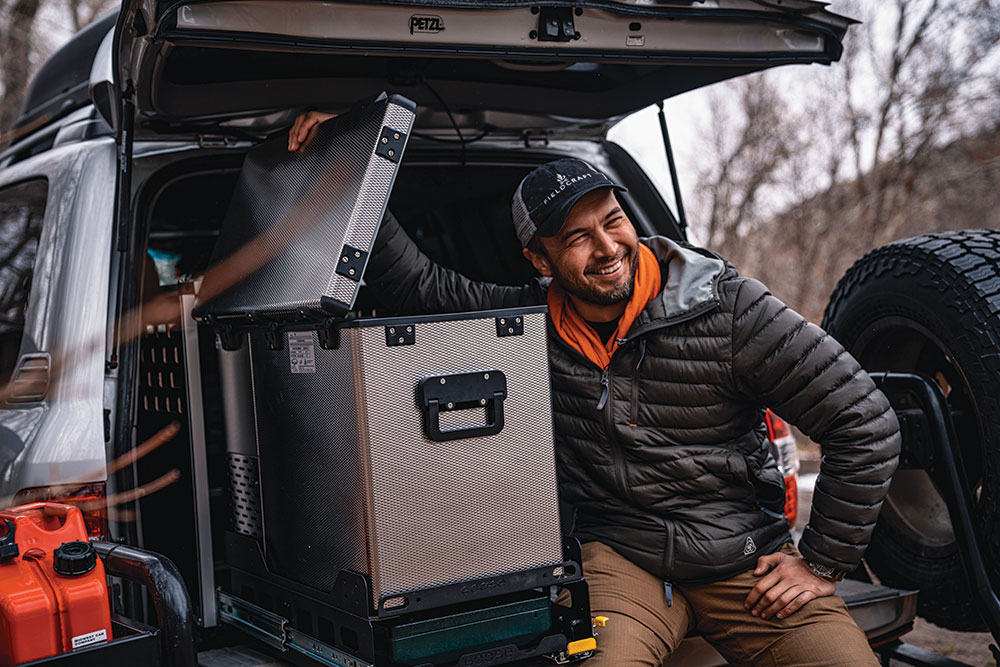
“As director of training, my job is to build the survival curriculum, as well as on-board and train survival instructors in the Fieldcraft way, coordinate with regional training facilities and build out the survival training program with new courses and more training opportunities,” he explained.
What should you expect when you’re thinking of taking a class with Fieldcraft Survival?
“’Fieldcraft’ is an all-encompassing term for different outdoor skills pertaining to navigation, personal camouflage and concealment, first aid, combat casualty care and various survival aspects.”
Its website is easy to navigate. Simply clicking on the “Training” heading on the site takes you to various choices: All Training, Firearms, Survival, Medical, Mobility, Self-Defense, Events and Digital Options. Various titles pertaining to the current date appear. Selecting any title will take you to a page displaying the class title, date, price, SKU number, location and a simple “add to cart” button.
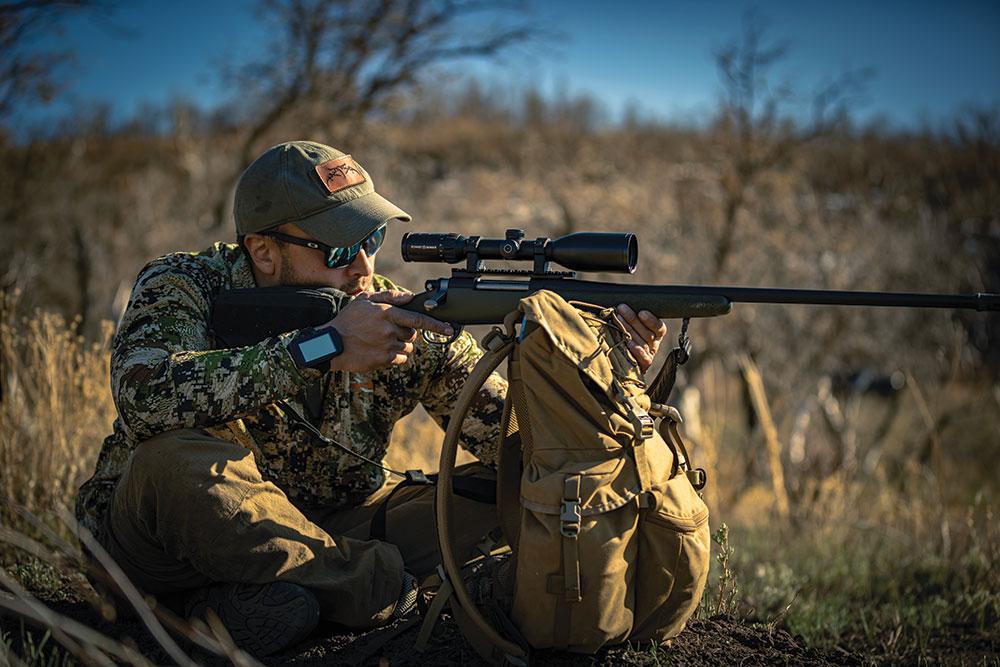
Under that is a brief class description. Required minimum equipment, a course time and location are clearly noted, as is contact information for any additional questions pertaining to the event. If you need to bring your own food, drinks and snacks, it’s duly noted on the website.
A few classes I found to be totally unique and “outside the box” started out with the Lost Proofing class, which highlights the art of knowing where you are at any given moment. This means that before you go into the wilderness, you’ve already researched the land/terrain you’re about to face. This one-day land navigation class will teach you the skills you need to navigate in a wilderness with a map, compass and GPS and will include terrain features, map-reading, measuring distance and pace-counting.
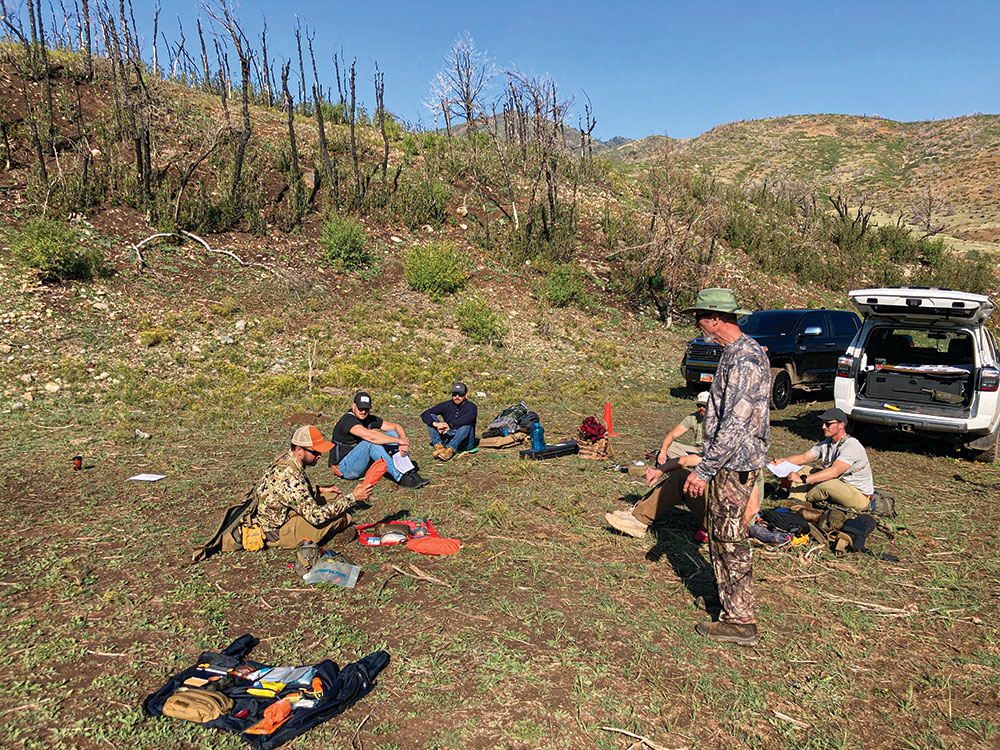
Fieldcraft Survival’s Wilderness Survival course will take your preparedness to the next step. It starts in the classroom and then moves to the woods, where students will put into practice the skills they learned. Heavy emphasis is placed on knife use and fire, all under the instructor’s watchful eyes.
“The Responsible Citizen First Aid course covers the basics of first aid … It teaches dealing with bleeding, tourniquets, what to keep in a first aid kit and how to be prepared to take the necessary life-saving measures … “
This strikes me as a standout course that covers survival mindset, building your survival kit, knot-tying, environmental conditions, constructing a shelter, building a fire, food and water procurement, prioritization of needs, packing a bug-out bag and addressing austere medical considerations. Minimal gear is required for this class (a water bottle and metal cup to serve as a container for boiling water, 50 feet of paracord, a ferrocerium rod/lighter and a small, fixed-blade knife).
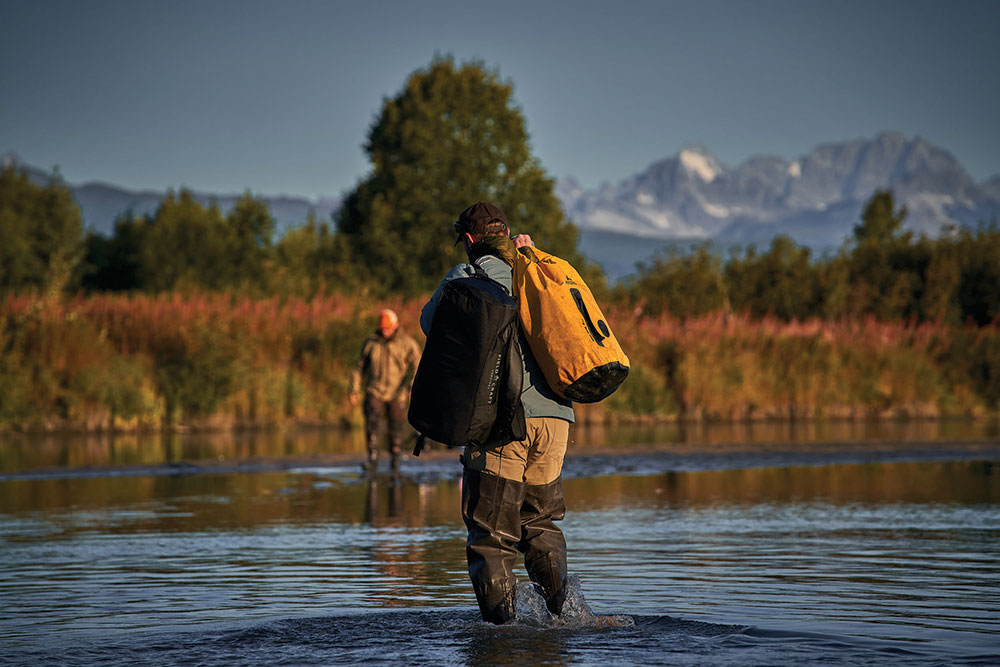
There’s a Wilderness Survival Level 2 course that’ll prepare you for the demands of long-term survival. This hands-on course is a mixture of field and classroom time. You’ll receive instruction from instructors who’ve had actual experience in predator mindset, animal habitat/behavior, survival firearms familiarity, survival fishing, makeshift snares, trap triggers, unconventional game-getting and emergency food options.
72-HOUR DARE
Glover challenged Estela to survive in Utah’s high desert for 72 hours with nothing except what he could fit into a quart-sized zip-close bag. It was highly documented and provided a host of great tips and lessons.
What started out as a dare became a class at Fieldcraft Survival—minus a day. It now offers a 48-Hour Ziploc Challenge, posing the class synopsis question: Do you have what it takes to survive with minimal gear?
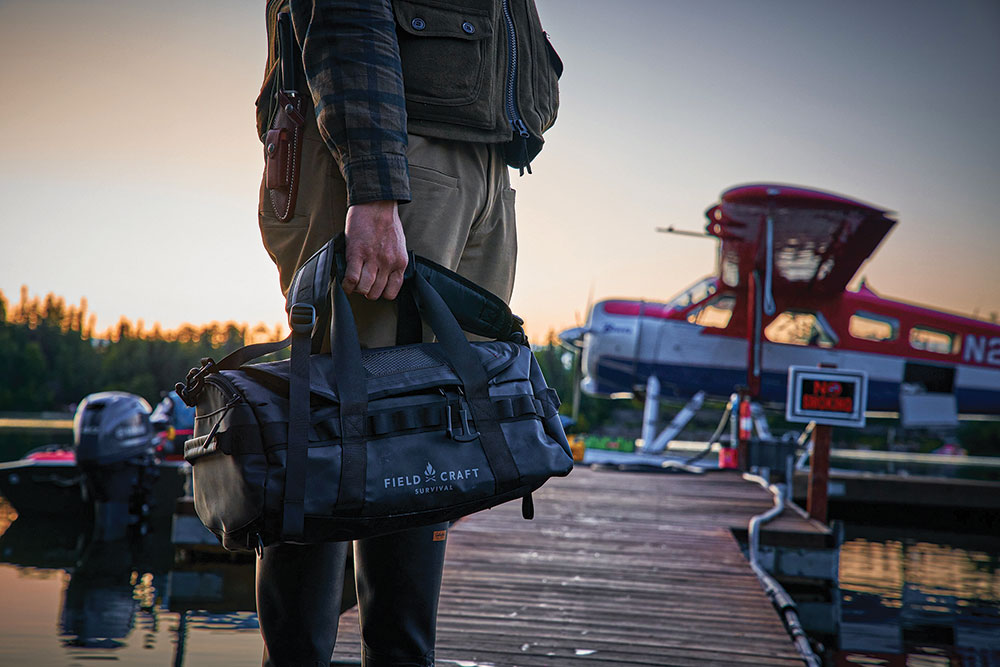
Students are allowed one quart-sized zip-close bag and will be checked for extra gear hidden on site. Fieldcraft Survival’s website states that all local laws must be respected and followed. While there’s a recommended gear list based on what worked for Estela, it’s expected that all participants will most likely modify it and make it their own.
‘SURVIVAL KITS AND COFFEE’
Survival Kits and Coffee is the sort of event that Fieldcraft Survival offers. It’s not quite a class; rather, it’s more of a gathering of the minds, both casual and informative. Show up with what you carry in your pockets or ruck, or just come with an open mind to learn what you should carry. Fieldcraft Survival hosts quite a few events such as this right in Heber City.
Survival Kits and Coffee is a local hangout where Kevin Estela and like-minded people gather who want to talk shop and gear and drink Black Rifle coffee. Kevin demonstrates what he carries—and, more importantly, why. From then on, participants ask questions, handle other kits and get ideas on how to reconfigure their own kits. The best part of all this knowledge and interaction is that it’s free. Bravo, Fieldcraft Survival!
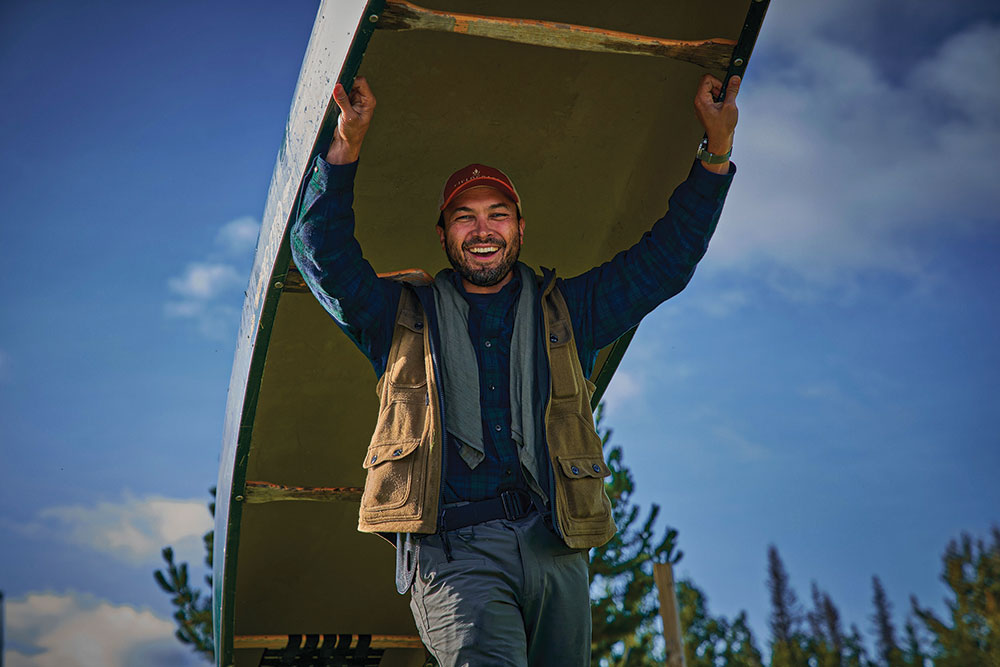
MOBILITY EXPERIENCE
From the perspective of the mobility platform, the Fieldcraft Survival Mobility Experience is an all-inclusive, high-end course that covers the ins and outs of the “pillars of preparedness” (water, shelter, fire, food, signaling/communication, health and security). This course takes place in Spanish Fork, Utah. People train using their own vehicles and camp out of them on primitive land for the duration of the course. The course covers day/night land navigation, treating common injuries in/around vehicles, gunfighter pistols and vehicle dynamics. In addition, medical preparedness, mobility and off-road training comprise a large part of this type of training.
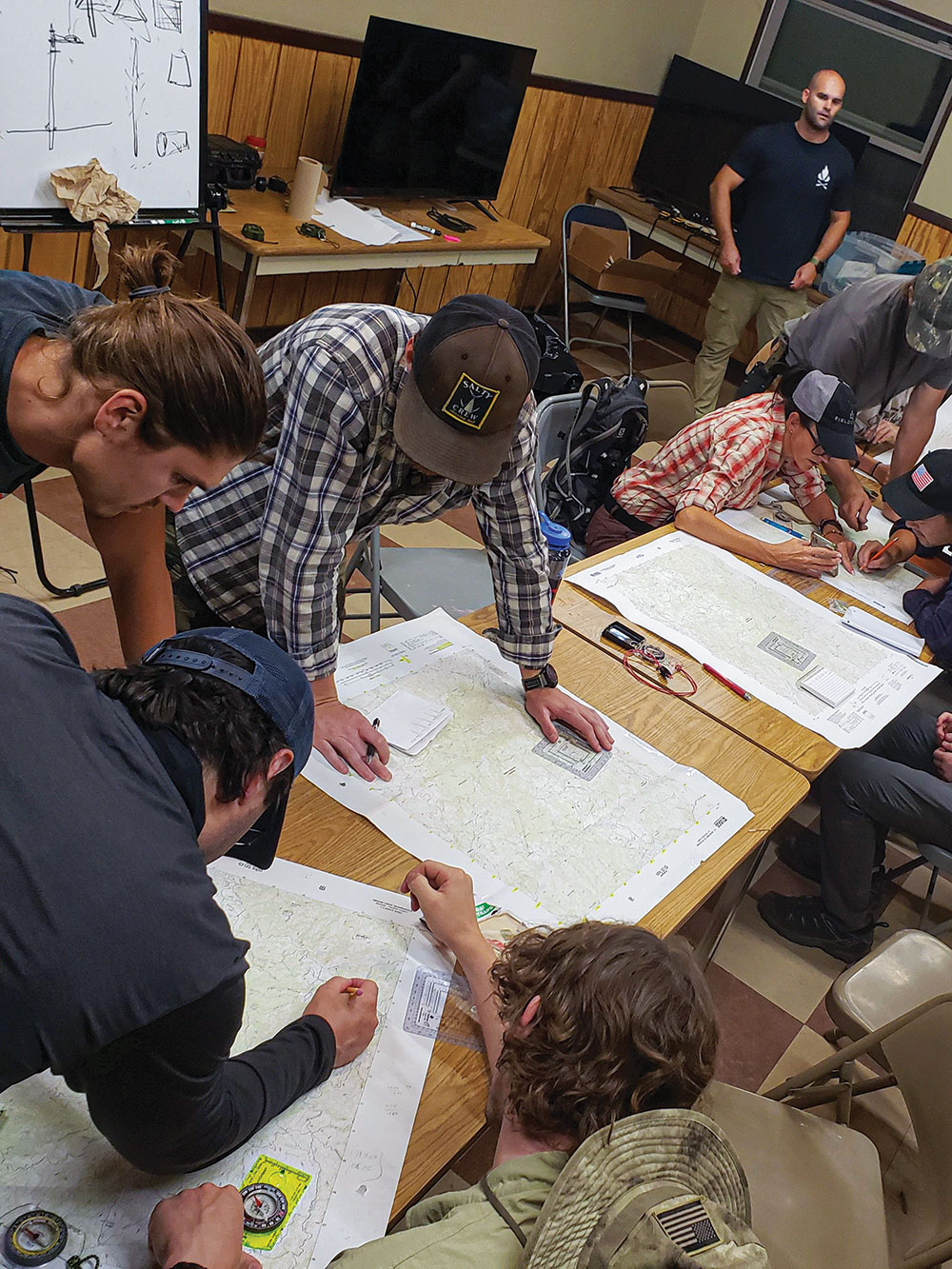
Glover hosts the event and provides instruction on various topics. Other segments of the course will be taught by several Fieldcraft Survival instructors, including Estela, Mike Hernandez, and Austin Lester (basically, the survival instructors’ version of the Point Break movie cast!).
And, what I liked about the course description was the statement that Fieldcraft Survival will provide food so good that you’ll forget you’re camping.
MEDICAL TRAINING
Robert Burns wrote, “The best-laid schemes o’ mice an’ men/Gang aft a-gley” (often go awry).”
Nobody plans on getting injured, but being prepared for it is another affair. Fieldcraft Survival offers various first aid classes at its Heber City headquarters and in Aberdeen, North Carolina. They range from basic first aid courses/seminars to more-involved first aid and trauma courses. Family Medicine is a class designed to keep families medically aware and prepared for different emergencies.
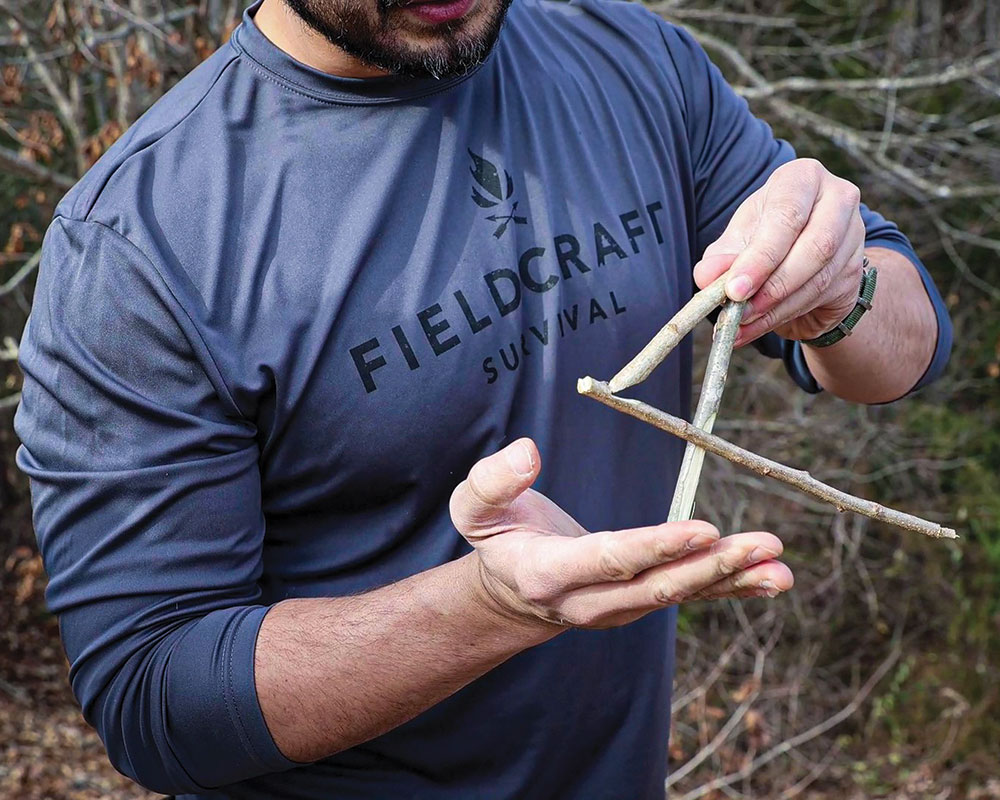
The Responsible Citizen First Aid course covers the basics of first aid—taking responsibility as your own first responder in an emergency. It teaches dealing with bleeding, tourniquets, what to keep in a first aid kit and how to be prepared to take the necessary life-saving measures for your own life or others’. First Aid and Trauma Response is another more-in-depth class covering proper techniques for stopping massive hemorrhaging, tourniquet use, wound packing, assessments, stress management, patient turnover to advanced care and more.
STOREFRONT
In this age of online shopping, especially with outdoor gear, Fieldcraft Survival does have a brick-and-mortar store in Heber City, Utah. It carries products that help keep the end user mobile, prepared and safe. The store offers medical gear and various carrying options (bags, pouches) for the vehicle, such as the Modular Visor Panel, which keeps essential gear within easy reach.
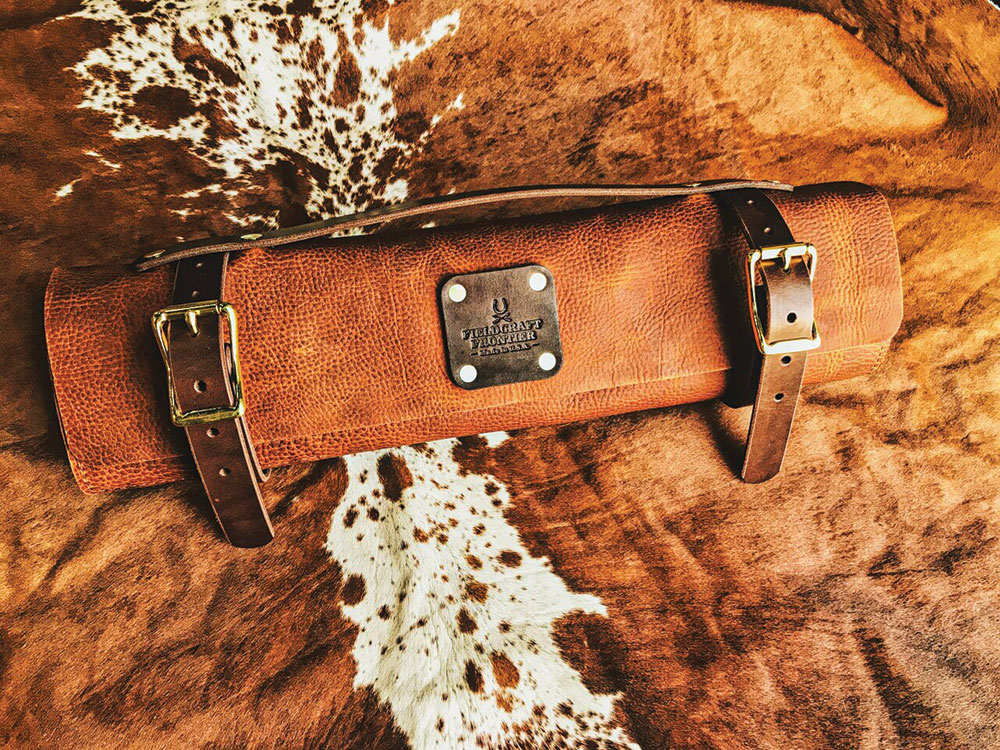
The store also offers splints, first aid essentials and well-thought-out vehicle trauma kits. The Fieldcraft Survival Mobility 01-02 GoBag Gen3 is a real gem, because it acts as a modular seat panel pack that’s secured to the back of a vehicle seat. The pack has hook-and-loop-adhered pouches (included) and MOLLE to attach accessories. The pack can also be removed from the seatback and used as a backpack.
The Fieldcraft Survival store offers select, quality survival items and prepackaged survival food. It also carries holsters and slings, including the inside-the-waistband (IWB) Kydex holster. Hats, hoodies, shirts and two attractive cutting boards are available. They all have the Fieldcraft Survival logo.
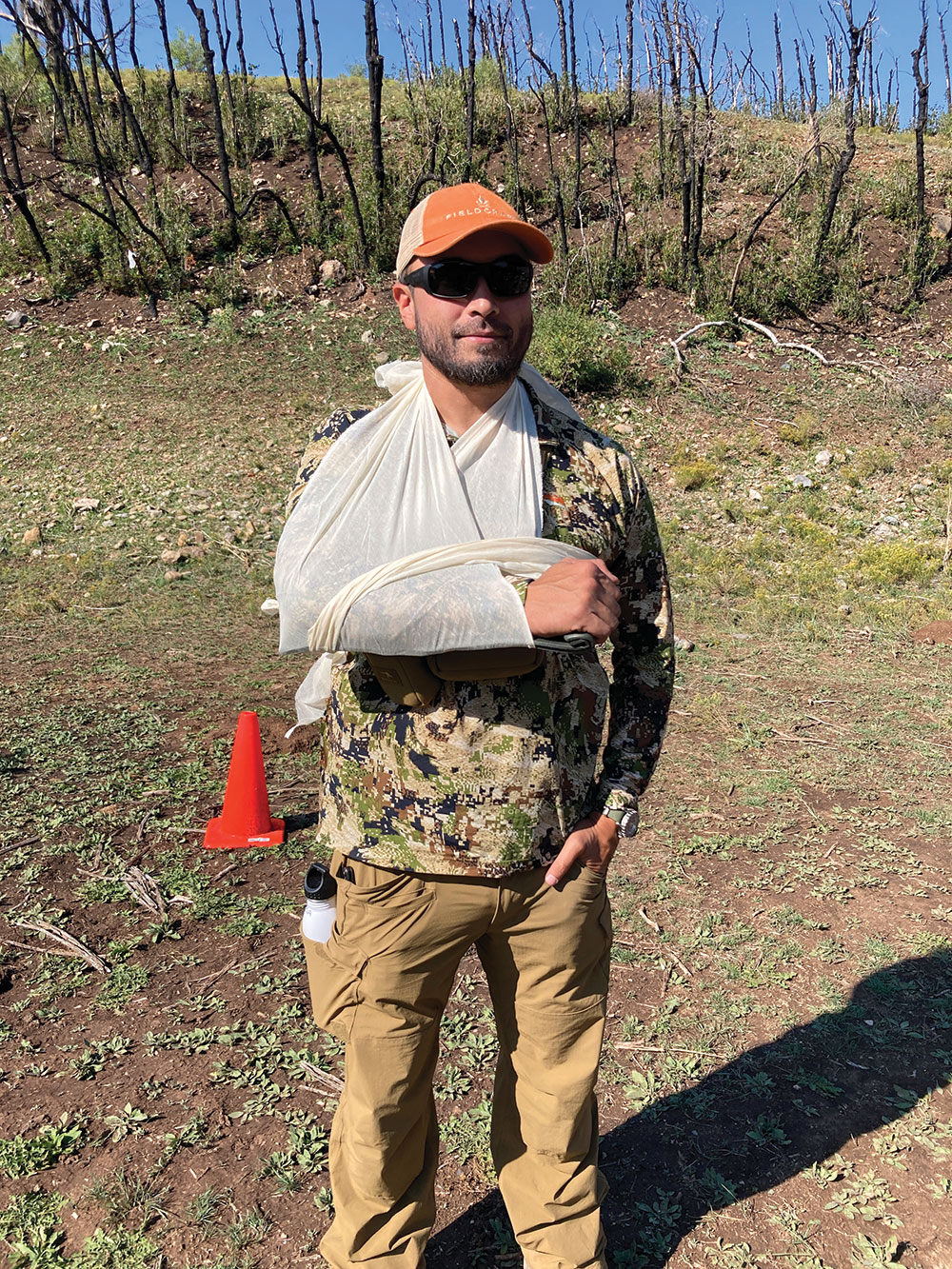
The store’s eye-catching leather goods are completely handmade in the U.S.A. by an in-house leathersmith at Fieldcraft Survival in Heber City.
The Mobility Tool Roll Bag is a real standout piece. It’s extremely durable, as well as water-resistant. It has nine sewn pockets, two belt straps and a leather handle for easy, on-the-go carry. It can be used for a variety of different tools.
All in all, just as Fieldcraft Survival is unique in its training, the same goes for its products.
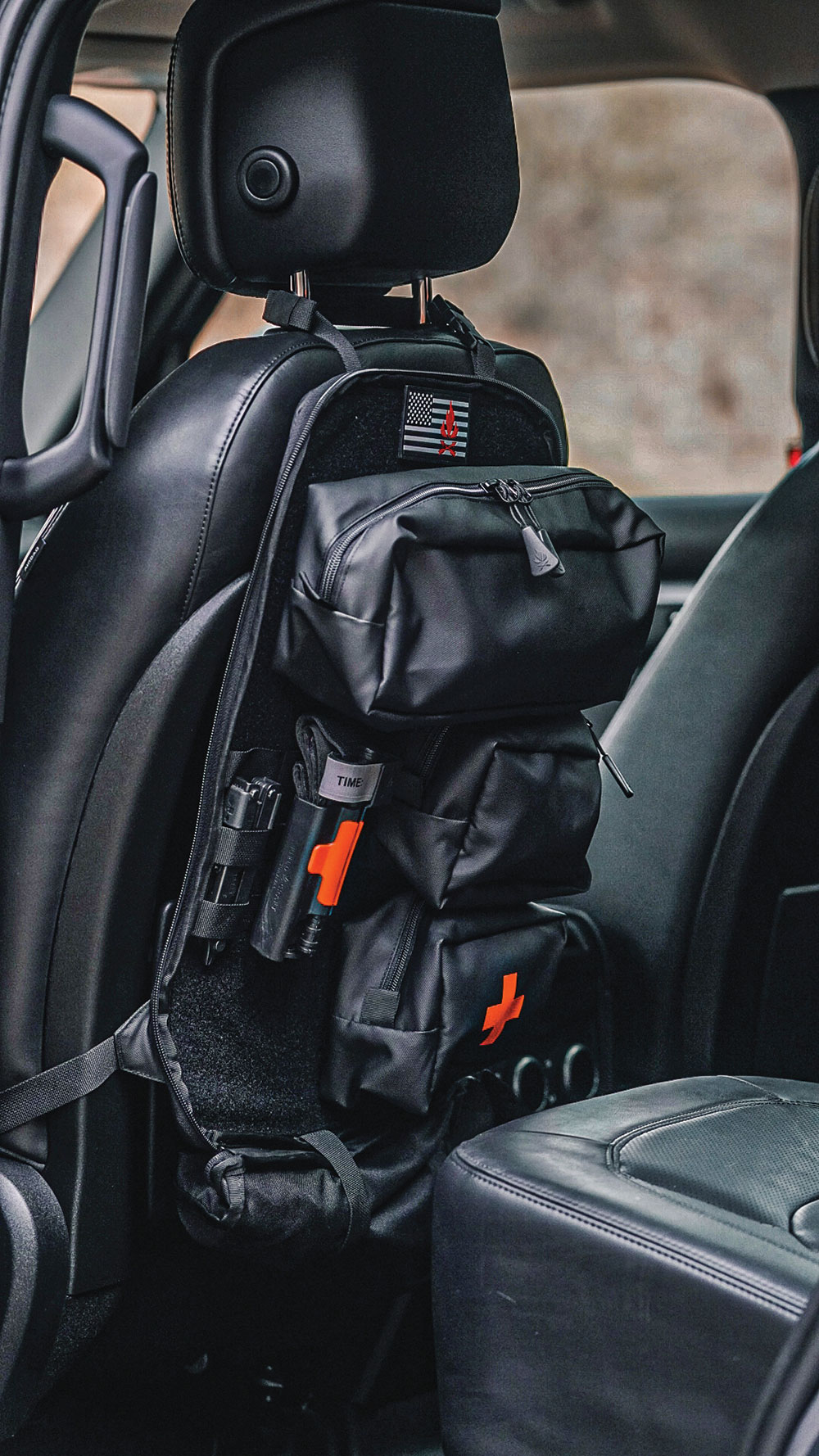
MISSION ACCOMPLISHED
Fieldcraft Survival continues to grow and is expanding rapidly—without losing sight of the company’s initial mission that Mike Glover put into action along the way. Because of its cutting-edge classes, instruction and unique, high-quality products, I can see this company sticking around for a long time.
In a video, Glover pointed out, “As a company, my mission statement has always been [that] I want to engage with people who aren’t interested in survival and have them think about the way that they look at their modern survival and their life. If they improve anything in their life, or we’ve provided a sliver of information that benefits them, then that’s all good for us.”
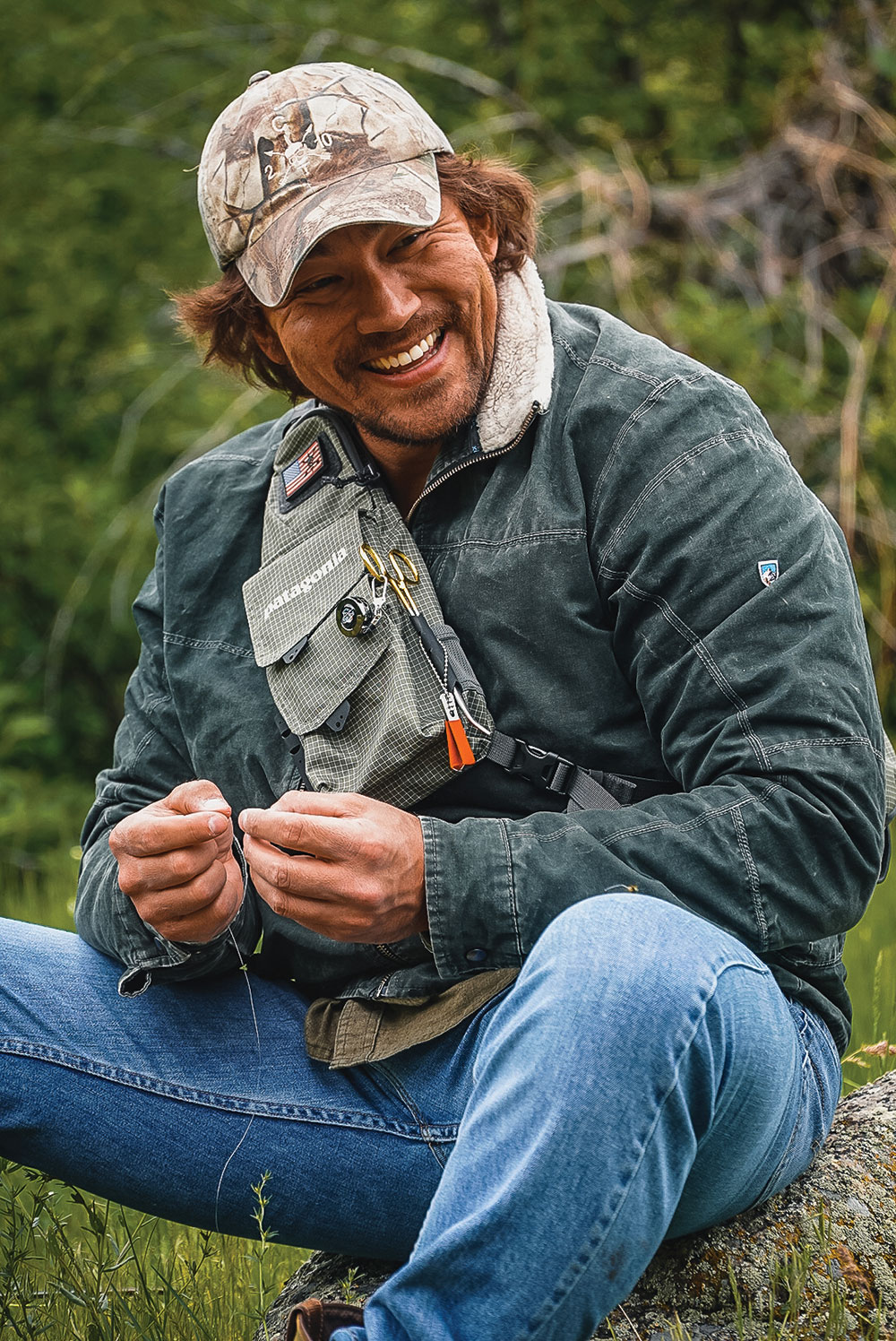
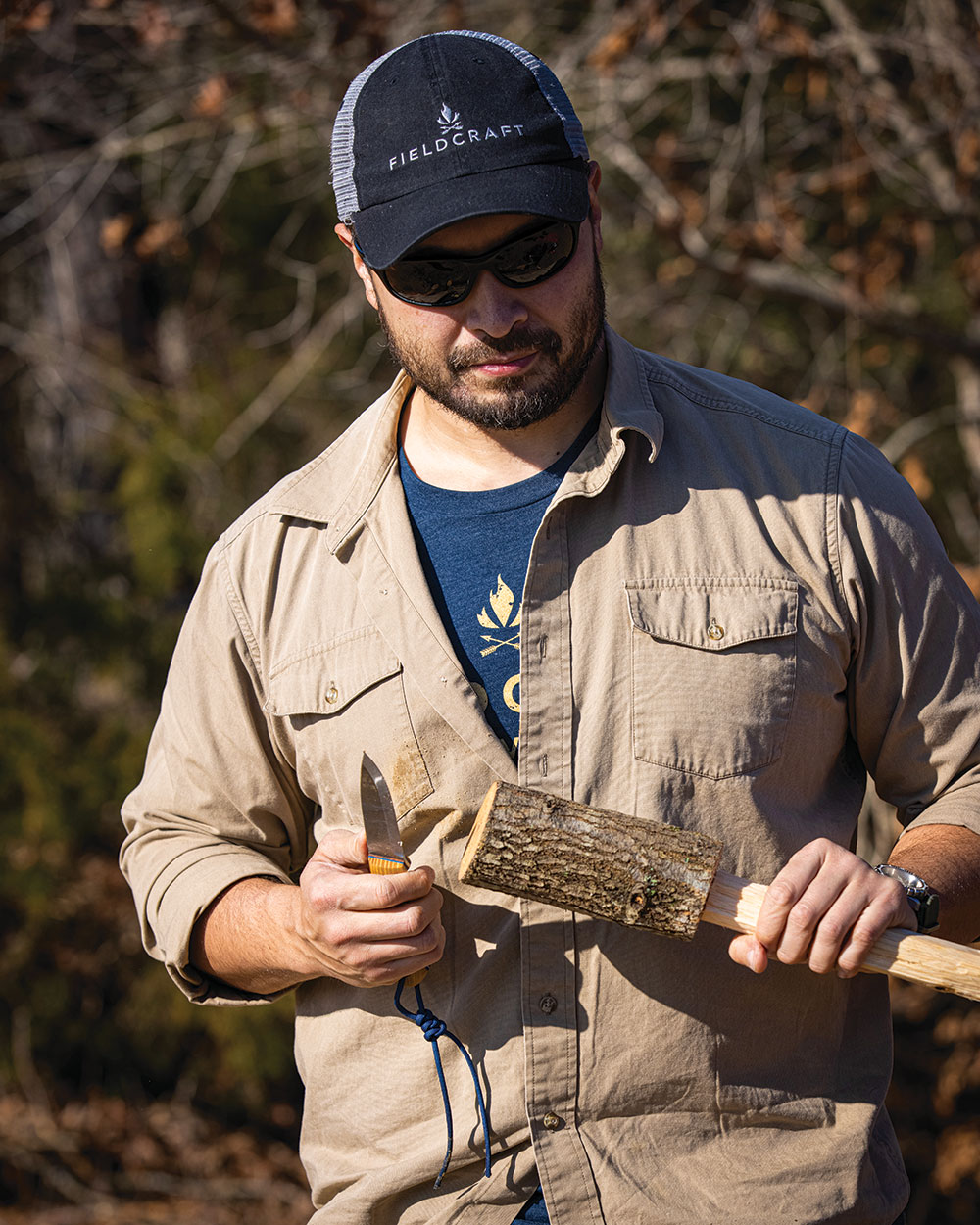
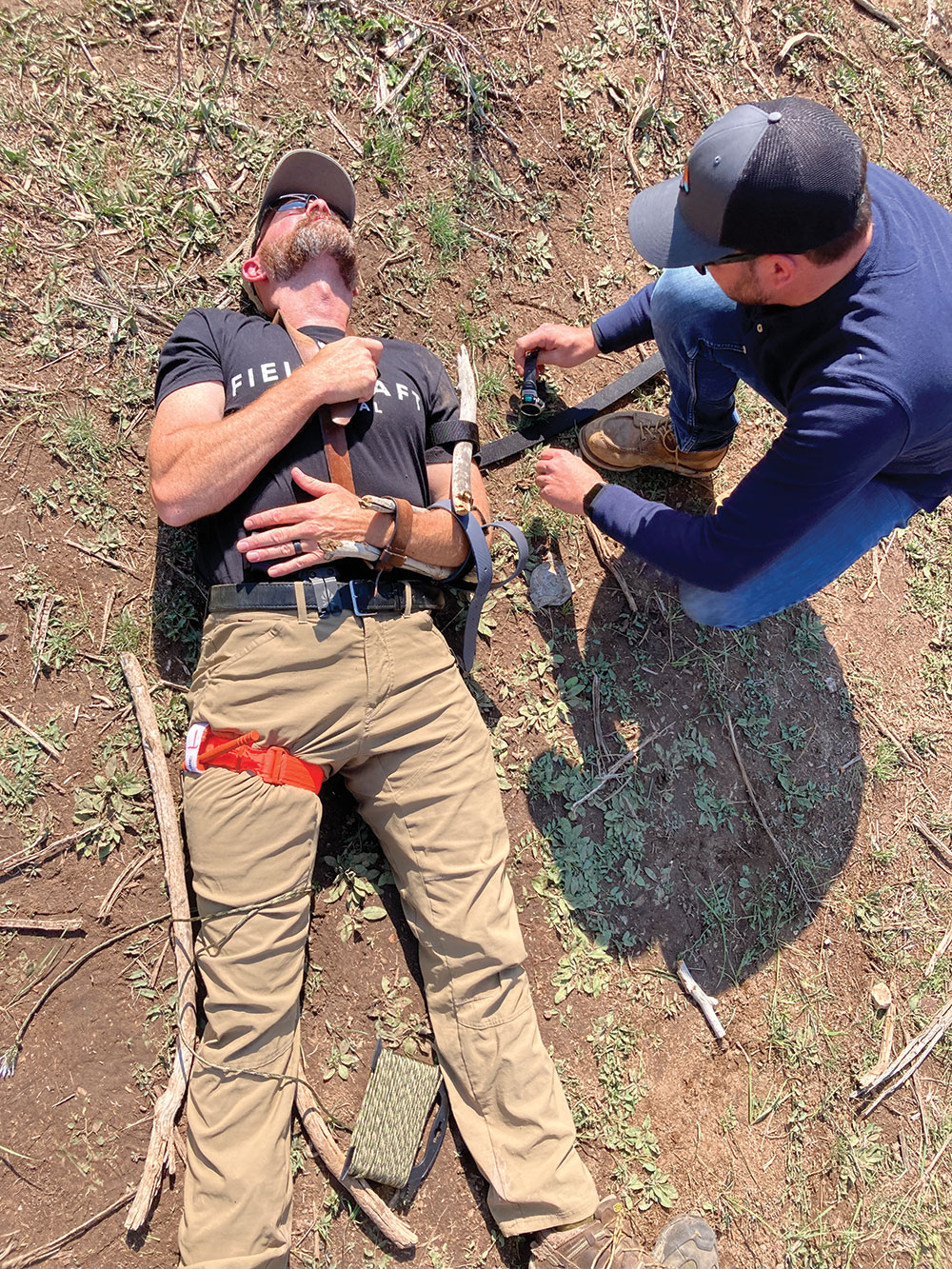
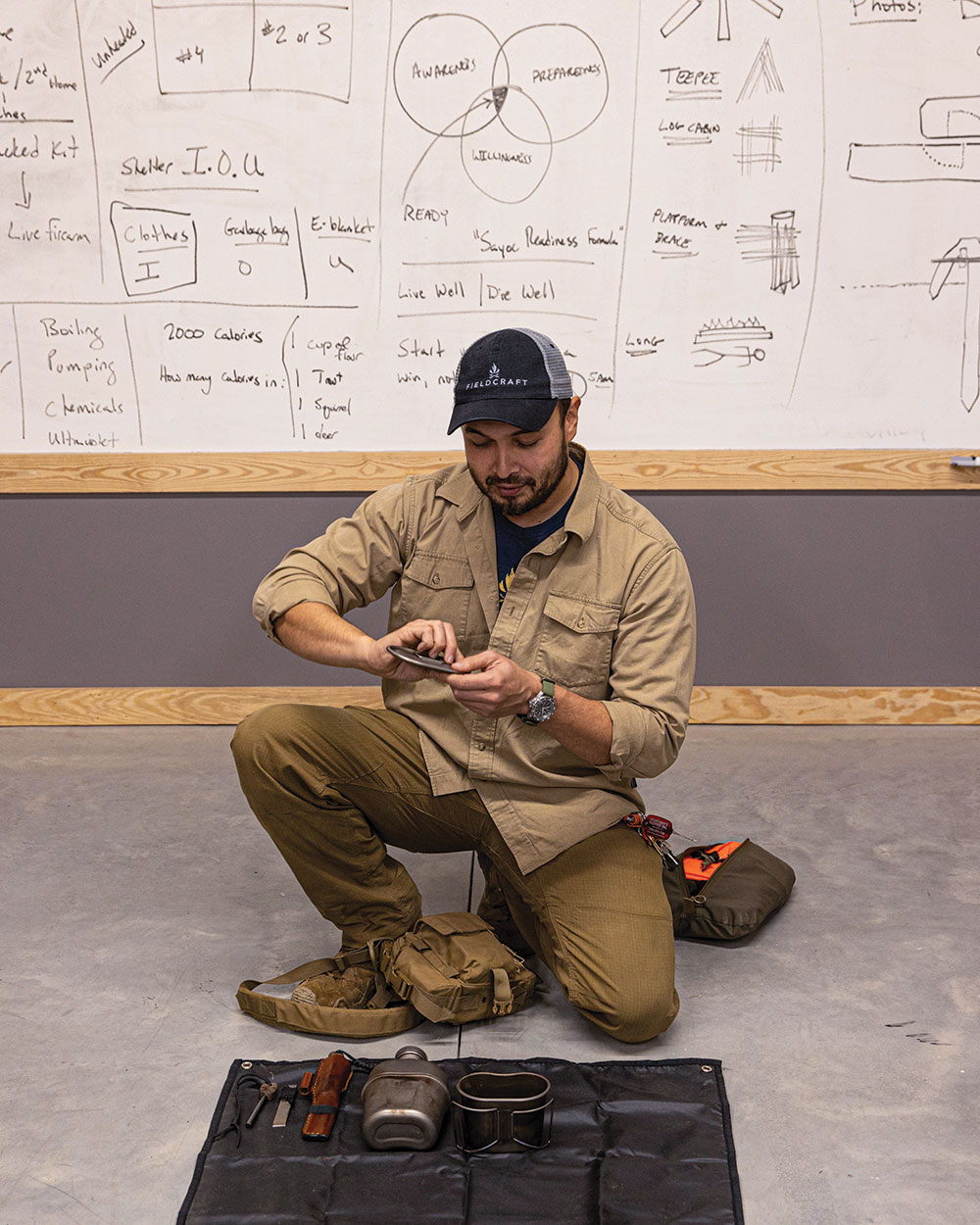
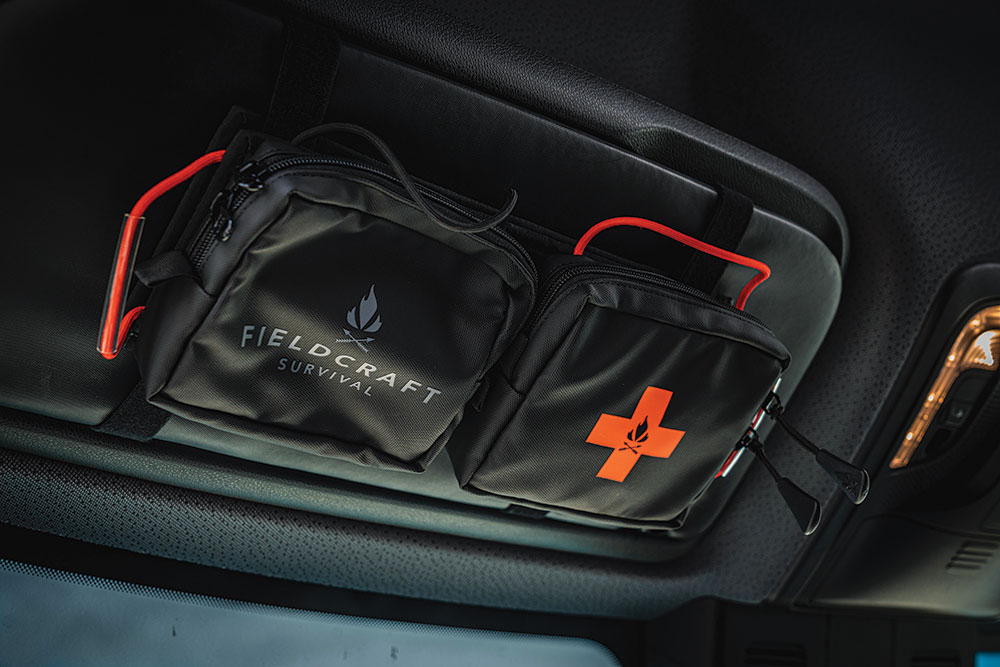
101 SKILLS YOU NEED TO SURVIVE IN THE WOODS
Kevin Estela, the director of training for Fieldcraft Survival, is a lifelong outdoorsman with over two decades of outdoors teaching. He’s well versed in bushcraft/survival skills, which helped pave the way for him to work with the History Channel and as a featured guest on numerous broadcasts/podcasts. A sought-after speaker, he’s written more than 160 articles for many publications, including the pages of American Outdoor Guide and its previous iteration, American Survival Guide.
In 2018, Kevin wrote 101 Skills You Need To Survive In The Woods, considered by some to be the quintessential guide for an outdoor enthusiast’s “bucket list” of skills. These skills include making a fire, building a shelter, gathering food, finding water, using a knife correctly and making cordage. Each chapter concludes with more-advanced techniques to build your skills in various challenging situations, including tips for even seasoned survival enthusiasts to discover.
These skills will keep you safe and better prepare you to deal with emergencies in the field. The book also discusses additional skills, such as signaling, navigation and crisis first aid.
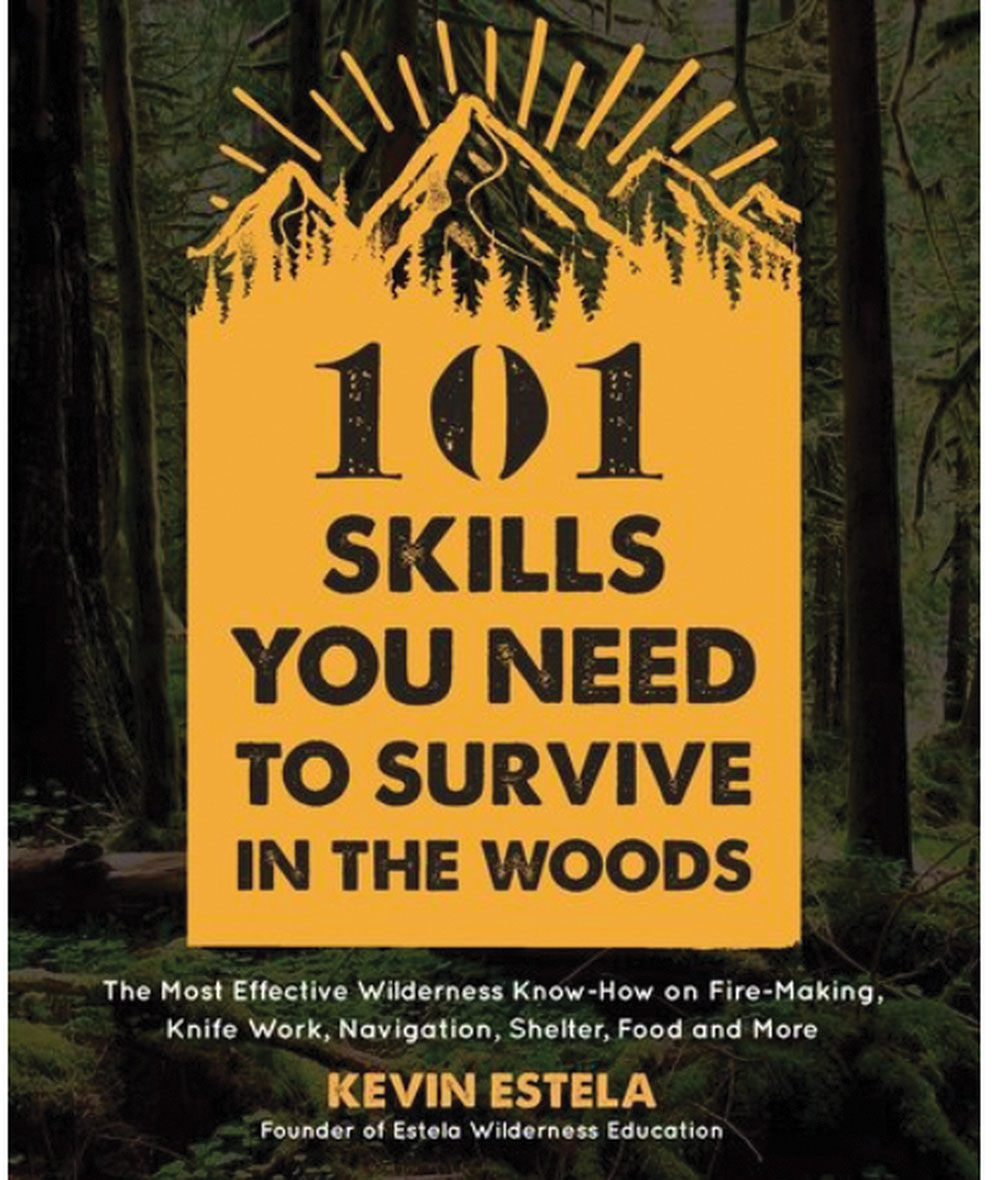
Estela wrote this book the same way he teaches survival skills—in line with the “feeder” mindset, meaning being in control of a situation; proactive rather than reactive. It’s an optimistic outlook that reframes any situation as a learning experience.
101 Skills You Need to Survive in the Woods isn’t a one-time read. It’s a lifetime reference you’ll turn to again and again.
BUSHCRAFT OVERNIGHTER
Bushcraft Overnighter is another course taught by Kevin Estela. “Bushcraft” is the art of doing more with less by traditionally utilizing the environment’s resources. Bushcraft intertwines primitive skills with modern equipment, thus helping practitioners live with the environment.
Students get introduced to various ways of making fires, creating shelters, using their knives for carving, tying knots, creating wooden tools, primitive cooking and addressing camping needs for this course. Bushcraft is all about learning how to “smooth it” in the great outdoors instead of roughing it.
Required gear includes—
- Sleeping pad
- Sleeping bag (20 degrees [F])
- 6×8-foot nylon tarp, minimum (ideally, 10×10 feet)
- Personal mess kit (bowl, cup, spoon and 1-quart pot with bail)
- Fire-starting kit (ferro rod, tinder, Bic lighter)
- Cutlery (4-inch, fixed-blade knife, Swiss Army knife/Leatherman)
- Folding saw (Bahco Laplander or Silky Pocketboy folding saw)
- Water bottle or canteen with nesting metal cup
- 100 feet of 550 paracord and jute twine
- Four quick-prepare food rations (2 lunch, 1 dinner, 1 breakfast) and snacks
- Possibles pouch with headlamp, finger bandages, hydration tablets, sharpening stone, etc.
- Clothing and footwear for training in all weather conditions (including rain gear)
A version of this article first appeared in the February 2022 issue of American Outdoor Guide Boundless.

